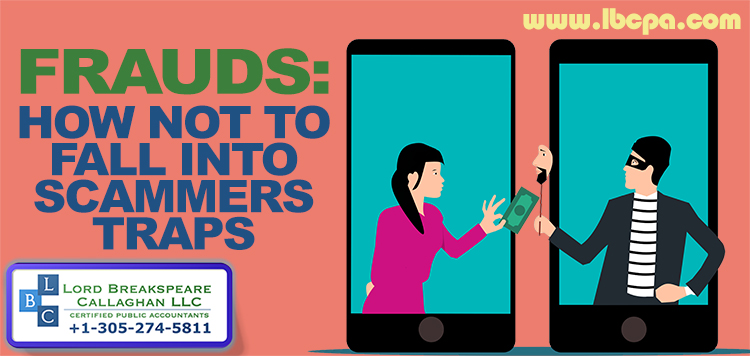LBCPA News 
Click here to go back
Learn the Warning Signs of Employee Retention Credit Scams

Businesses and tax-exempt organizations should watch out for telltale signs of misleading claims involving the Employee Retention Credit. Scammers and unscrupulous promoters continue to run aggressive broadcast advertising, direct mail solicitations and online promotions for the credit. Many of these ads wildly misrepresent and exaggerate who can qualify for the ERC, which is sometimes also called ERTC or the Employee Retention Tax Credit.
Anyone who improperly claims the ERC will have to pay it back, possibly with penalties and interest. The IRS doesn't want that to happen. Employers should know what the credit is and who qualifies and be on the lookout for the warning signs of a scam. And they should rely on the advice of a trusted tax professional, not aggressive marketing or unsolicited proposals.
About the ERC
The ERC is a refundable COVID-era tax credit designed for employers that kept paying employees while shut down because of a COVID-19 related government order or that had a requisite decline in gross receipts during the eligibility periods. The credit can be claimed only by eligible businesses and tax-exempt organizations that had employees during specific time periods.
Anyone considering claiming the ERC should carefully review the specific eligibility requirements at IRS.gov/erc. Eligible employers who need help claiming the credit should work with a trusted tax professional.
Warning signs of an ERC scam include:
- Unsolicited calls or advertisements mentioning an “easy application process.”
- Statements that the promoter or company can determine ERC eligibility within minutes or before any discussion of the employer's tax situation. The Employee Retention Credit is a complex credit that requires careful review before applying.
- Large upfront fees to claim the credit.
- Fees based on a percentage of the refund amount of ERC claimed.
- Promoters telling businesses to claim the ERC because they have nothing to lose. Those who improperly receive the credit could have to repay it – along with substantial interest and penalties.
- Promoters telling businesses to ignore the advice of their trusted tax professional.
These promoters may lie about eligibility requirements. In addition, anyone using these promoter's services could be at risk of someone trying to steal their identity or use their information to take a cut of the improperly claimed credit.
How the promoters lure victims
The IRS continues to see a variety of ways that promoters can lure businesses, non-profit groups and others into applying for the credit.
- Aggressive marketing. ERC ads are appearing almost everywhere, including radio, television and online as well as phone calls and text messages.
- Direct mailing. Some ERC promoters are sending letters to taxpayers from non-existent groups like the "Department of Employee Retention Credit." Scammers will create these letters to look like official IRS correspondence or an official government mailing with language urging immediate action.
- Leaving out key details. Third-party promoters of the ERC often don't accurately explain eligibility requirements or how to calculate the credit. They may make broad arguments suggesting that all employers are eligible without evaluating an employer's individual circumstances. In addition, many promoters don't tell employers that they can't claim the ERC on wages that they reported as payroll costs if they received Paycheck Protection Program loan forgiveness.
If you have any questions regarding Essential Business Accounting, Domestic Taxation, International Taxation, IRS Representation, U.S. Tax Implications of Real Estate Transactions or Financial Statements, please give us a call at +1-305-274-5811.
Source : IRS






